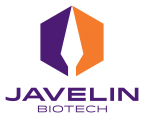Javelin Biotech (“Javelin”) today announces a three-year collaboration with Pfizer Inc. (NYSE: PFE) to design and build what could potentially be an industry-leading platform to evaluate ADME (absorption, distribution, metabolism and excretion) properties of small molecules. The ADME platform will integrate
Collaboration aims to create the first “organ-on-a-chip” system specifically designed for human PK predictions
WOBURN, Mass.--(BUSINESS WIRE)-- Javelin Biotech (“Javelin”) today announces a three-year collaboration with Pfizer Inc.. (NYSE: PFE) to design and build what could potentially be an industry-leading platform to evaluate ADME (absorption, distribution, metabolism and excretion) properties of small molecules. The ADME platform will integrate a microphysiological system (MPS), commonly referred to as “organ-on-a-chip,” with interactive computational software to help inform human pharmacokinetic (PK) predictions, a key measure in evaluating new drug candidates in preclinical research. If successful, Javelin plans to commercialize the platform for broad industry adoption; it would potentially be the first “organ-on-a-chip” system on the market specifically designed for human PK predictions.
Under terms of the agreement, the companies will bring together Javelin’s in-depth tissue engineering and microfluidics expertise and Pfizer’s leading expertise in human PK predictions to create the ADME platform. Javelin will design, build and test the platform, and Pfizer will provide industry guidance for real-world usage, as well as drug and data sets to help validate the platform’s predictions. Javelin will retain any potential commercialization rights to the platform. Financial details were not disclosed.
The platform aims to provide insights into how drugs perform in humans and supports quantitative decision making, including to predict PK parameters across sub-populations and to guide first-in-human dosing strategy for Phase I clinical trial design.
The ADME platform will comprise an MPS system that contains chambers for the four most important human tissues involved in drug disposition (liver, kidney, intestine, and tissue distribution), as well as a microflow pumping system that circulates media among the compartments. The system will be coupled with a computational algorithm that will translate the data to a physiologically based model of human PK.
Current efforts in preclinical drug development characterize ADME properties of drug candidates with in vitro systems and animal models, both of which often have drawbacks. Human cell-based in vitro systems often lack the complexity to replicate tissue cytostructure and function. While animal models offer more complexity, they often lack human relevance. The Javelin team has published multiple papers supporting the use of interconnected, human tissue cultures with the complexity and relevance to estimate ADME parameters and to translate to human clinical PK profiles.
“At Javelin, we develop predictive solutions to address a range of bottlenecks in preclinical drug discovery. The human ADME platform that we aim to create is a great example of the power of our approach combining bioengineering with data sciences. We are excited to work with Pfizer’s ADME scientists through this collaboration,” said Dr. Murat Cirit, CEO of Javelin Biotech. “With recent advances in microphysiological systems, Javelin and Pfizer share a common vision and see an opportunity to design a platform that delivers human ADME parameters in a time, cost, and scale that can improve current lead optimization and candidate nomination practices.”
“This collaboration between Pfizer and Javelin has the potential to lead to a transformational change in how we evaluate human pharmacokinetics, without dosing humans,” said Charlotte Allerton, Head of Medicine Design, Pfizer. “PK predictions are a fundamental element in how we prioritize emerging therapies to move into the clinical stage of development, and a platform such as the one we aim to create will give us higher confidence as we choose candidates that we hope will ultimately develop into breakthroughs that change patients’ lives.”
For more information, email kevin@javelinbio.com and visit www.javelinbio.com
About Javelin Biotech:
Javelin Biotech is a venture-backed company spun out from Dr. Murat Cirit’s lab at MIT. The company develops predictive preclinical drug discovery platforms integrating human complex in vitro models and data science for ADME applications and to study neurodegenerative diseases and liver/metabolic diseases. These platforms deliver actionable insights, time savings, and cost savings to pre-clinical drug discovery & development teams. Javelin Biotech is located in Woburn, Massachusetts.
View source version on businesswire.com: https://www.businesswire.com/news/home/20200923005759/en/
Source: Javelin Biotech






